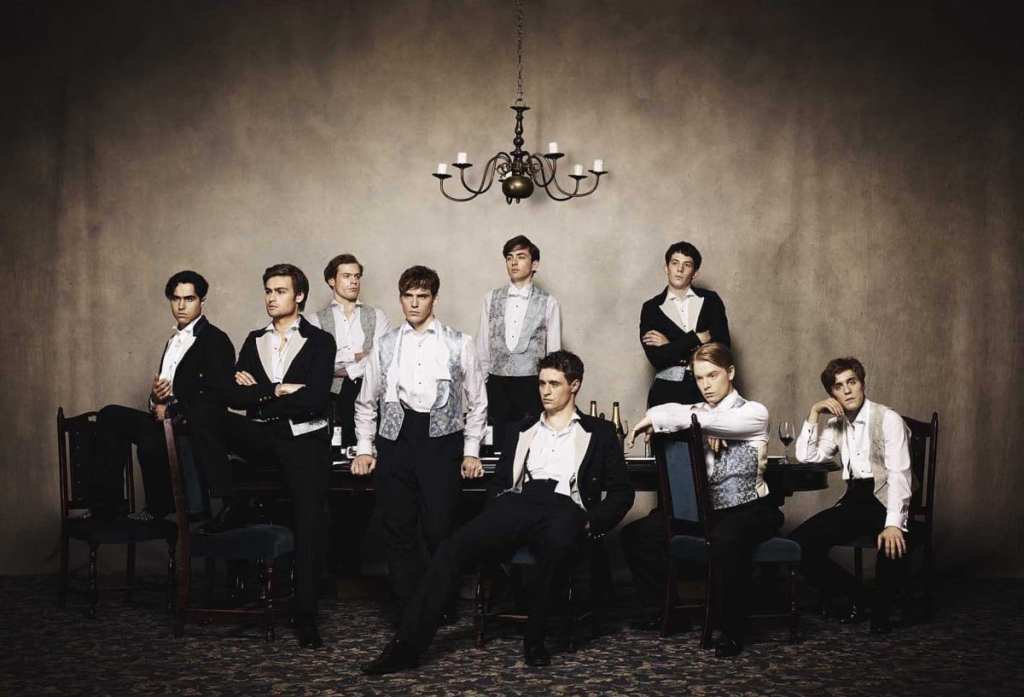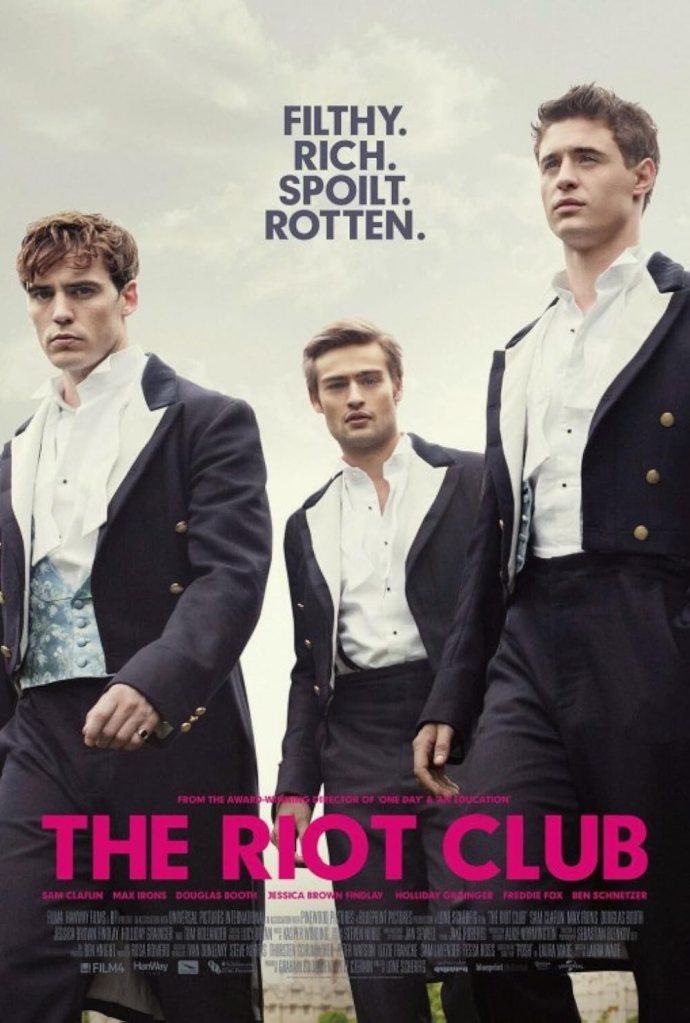Synopsis- Alistair and Miles join Oxford University for their first year and soon enter the Riot Club. The two go with the rest of the club’s members for a party and things do not go as planned for them.
Director- Lone Scherfig
Cast- Sam Claflin, Max Irons, Douglas Booth
Released- 2014
In the annals of British cinema, the notion of class struggle has long been a fertile ground for exploration, and “The Riot Club” attempts to thrust this theme into the limelight once more. Written by Laura Wade, the film adaptation of her play, directed by Lone Scherfig, embodies a blistering critique of privilege and entitlement, yet falters in its execution, leaving audiences with a narrative that struggles to transcend its own sensationalism.

At its core, “The Riot Club” is a scathing indictment of the upper echelons of British society, embodied by the titular club, an exclusive enclave of Oxford University’s elite. Set against the backdrop of a decadent dining club known for its debauchery and excess, the film follows the initiation of two new members, Miles (Max Irons) and Alistair (Sam Claflin), as they navigate the murky waters of power, privilege, and moral bankruptcy.
Scherfig’s direction is undeniably proficient, capturing the opulence and decadence of the Riot Club with a keen eye for detail. The film’s lavish production design and sumptuous cinematography evoke a world of luxury and excess, providing a stark contrast to the squalor and desperation of the outside world. Yet, for all its visual splendour, “The Riot Club” ultimately falls short in its thematic depth, offering little more than a surface-level critique of its subject matter.

The film’s characters, while impeccably portrayed by a talented ensemble cast, lack the nuance and complexity required to fully engage the audience. Miles and Alistair, the film’s central protagonists, are little more than caricatures of entitled privilege, their actions driven more by plot contrivance than genuine motivation. Supporting characters fare a little better, existing primarily as plot devices to drive the narrative forward rather than fully realized individuals in their own right.
Moreover, “The Riot Club” suffers from a distinct lack of subtlety in its messaging, opting instead for heavy-handed moralizing and overt symbolism. Themes of class disparity and societal decay are hammered home with all the finesse of a sledgehammer, leaving little room for interpretation or reflection on the part of the viewer. As a result, the film’s social commentary feels superficial and contrived, failing to resonate on a deeper emotional or intellectual level.

In the end, “The Riot Club” is a film that squanders its considerable potential, opting for style over substance and sensationalism over genuine insight. While it may offer a superficially entertaining glimpse into the world of privilege and excess, it ultimately fails to deliver a meaningful exploration of its themes. As such, it must be judged as a missed opportunity rather than a triumph of cinematic storytelling.

Leave a comment